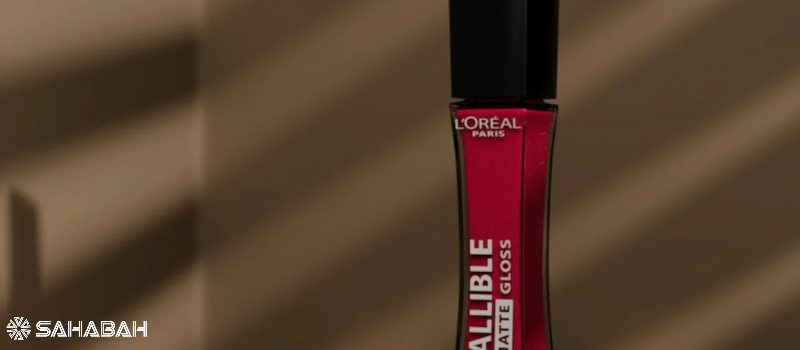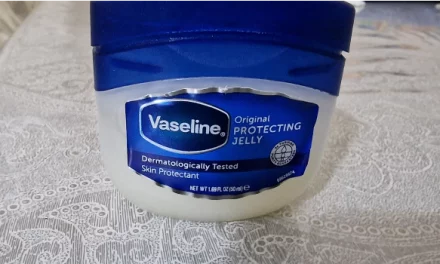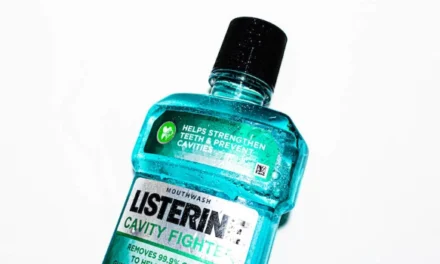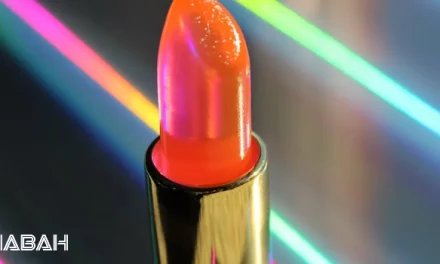With ubiquitous classics like L’Oréal Paris lipstick and Maybelline mascara, the L’Oréal Group dominates global color cosmetics. However, discerning Muslim shoppers may pause when spotting these popular products. Are mass brands like L’Oréal halal and permissible to use under Islamic law?
This article will scrutinize L’Oréal’s policies, ingredients sources, and certifications (or lack thereof) to determine if the beauty giant’s output aligns with halal standards expected by observant followers of Islam.
What Constitutes Halal Cosmetics?
To qualify as halal, cosmetics must comply with Islamic dietary regulations and ethics. The Arabic word “halal” means “permissible” while “haram” signifies forbidden.
Halal products should not contain:
- Pork or other animal products/byproducts forbidden by Muslim law
- Alcohol or intoxicating substances
- Contamination with ritually impure najs elements
- Ingredients derived from insects or carrion
Additionally, halal cosmetics must not be tested on animals. This prohibition comes from commands in the Qur’an against needless cruelty.
Growth projections further spotlight rising demand for certified halal beauty options:
- Global expenditures on Muslim-friendly cosmetics and toiletries could reach $52 billion by 2023
- The largest markets include Asia Pacific and the Middle East
- Consumers increasingly desire assurances that products meet religious standards
So do L’Oréal offerings make the halal cut for devout Muslim usage? Let’s investigate key factors:
Animal Testing Policies Then and Now
L’Oréal has grappled with changing societal views on ethical issues like animal experimentation for decades. While never a significant testing entity themselves, they relied on third parties to conduct animal trials prior to the late 20th century.
By 1989, L’Oréal opted to prohibit animal testing on finished cosmetic products after pressure from activists and consumers. However, the company continued lobbying EU regulators unsuccessfully to accept alternative safety substantiation methods.
The Complications of the Chinese Market
Up until 2014, Chinese regulations mandated animal testing on all imported cosmetics before granting market authorization. L’Oréal complied with these laws to gain access though did not conduct such trials themselves.
When questioned about this contradiction of corporate policy, L’Oréal’s official position was they did “not test on animals unless required by law.” Eventually, the regulatory landscape shifted thanks in part to L’Oréal’s behind-the-scenes efforts.
As of 2017, China scrapped previous animal testing requirements even for specialized products like hair dye or sunscreen. This allowed L’Oréal to fully enter the Chinese market while upholding their global animal test-free commitment.
Animal Testing Policy Today
Presently, L’Oréal no longer permits animal testing for any cosmetics. This applies to all subsidiaries across every market in the world. The only potential exception involves rare scenarios:
- When specifically required by law
- For toxicological evaluations after accidents/ worker safety incidents
- Or due to emerging science indicating public health hazards
In these cases, L’Oréal aims to use data from past animal studies to avoid new testing if feasible.
Additionally, L’Oréal invests heavily in developing scientifically valid replacement methods to outdated animal trials through groups like the Institute for In Vitro Sciences (IIVS). They are also founding members of the EPAA or European Partnership for Alternatives to Animal Testing.
So while L’Oréal cannot claim to be 100% cruelty-free since they sell newly-marketed products in mainland China, they are working with regulators to progress acceptance of animal test-free alternatives. Let’s next analyze if their ingredients meet Muslim standards.
What About Alcohol and Haram Ingredients?
Some beauty products lead to obvious halal compliance issues. For example, fragrances frequently contain denatured alcohol which is haram or “forbidden.”
When asked about general halal suitability in 2020, L’Oréal replied:
“We don’t have halal certificates for our products. But L’Oréal doesn’t use any ingredients that Muslim consumers could have reservations about.”
Let’s parse this statement further to see if it holds up to scrutiny. Because alcohol presence clearly contradicts their assurances…
Alcohol Content Varies Across Product Range
Many L’Oréal offerings especially within skincare and haircare are free from alcohol. However, some formulas clearly contain haram substances:
- Perfumes – Alcohol forms the base for eau de toilette and parfum in brands like Armani & YSL Beauté
- Certain Skincare Serums – Alcohol denat or alcohol may be present as solvents
- Sunscreens and Makeup Removers – Alcohol can act as penetration enhancers
While only modest volumes of alcohol are used in some cases, this still makes certain L’Oréal offerings prohibited according to halal standards.
Animal Byproduct Usage
L’Oréal confirmed in 2015 their products were not vegan, meaning complete avoidance of any animal sourced ingredient:
“None of our products carry a vegan label as such since we use ingredients such as honey, beeswax and pearl powder in some of our formulas.”
They reaffirmed this stance in 2020, stating no substantial changes regarding vegan ingredients sources. Let’s analyze concerning animal byproducts that may appear.
Carmine and Shellac
These two common crimson pigments frequently employed in cosmetics actually originate from insects. Carmine dye derives from dried cochineal beetles while shellac resin comes from female lac bugs.
Asked specifically about carmine and shellac content, L’Oréal indicated in 2020:
“Our red colour ingredients (such as carmine) undergo purification steps that are considered to make them halal-compatible.”
However, most halal certifying organizations do not agree carmine or shellac can be sufficiently purified. Multiple Muslim religious decrees clearly classify carmine and shellac as haram.
Further muddying the waters, L’Oréal said both carmine and shellac were present in “some of our lipsticks and nail polishes” without specifying which ones. This lack of transparency troubles consumers seeking to avoid these controversial animal byproducts.
Other Non-Vegan Ingredients
In addition to carmine and shellac hulls, L’Oréal products may contain tiny amounts of:
- Honey – An antimicrobial and humectant in some lotions
- Beeswax – Thickening agent in lip formulas and mascaras
- Pearl Extract – Adds radiance as an emollient in luxury creams
- Keratin – Protein derived from horns, hooves, feathers or hair
While these animal-sourced ingredients undergo processing, they do not meet the criteria for halal.
The Body Shop – A Notable Exception?
L’Oréal acquired The Body Shop in 2006. And the UK-based brand does carry halal certification from The Indonesia Council of Ulama and the Muslim Consumer Group of Malaysia JAKIM.
This suggests some L’Oréal-owned offerings meet halal standards, although exact terms and products covered remain vague. The Body Shop markets itself as using ethically-sourced fair trade ingredients but is not 100% vegan.
And halal assurance applies uniquely to this pre-existing niche brand rather than L’Oréal’s overall product catalogue. Mainstream lines like L’Oréal Paris, Lancôme, Maybelline, etc. currently lack any halal verification.
What’s Next?
L’Oréal rarely formally responds to halal queries anymore after past fragmented statements. Reading between the PR lines makes discerning religious permissibility tricky for Muslim consumers.
But the corporation clearly knows Islamic markets represent a major area of growth. Halal cosmetics were even a featured segment at their 2022 “Beauty Tech Showcase” targeting Chinese and Southeast Asian regions.
And the beauty giant actively courts key opinion leaders in the modest fashion space. Recent examples include hosting hijabi influencers like Amenakin, Dian Pelangi and Ria Serese at the Cannes Film Festival or Paris Fashion Week.
So could official halal certification be on the horizon? Only time will tell but L’Oréal seems to be laying strategic groundwork targeting compliant offerings for 1.9 billion Muslim consumers globally.
The Verdict?
Very few L’Oréal products qualify as definitively halal currently. Yet the global beauty leader does appear gradually acknowledging this untapped market’s potential. Their stepped up investment in cost-effective non-animal testing methods aligns with local animal welfare regulations worldwide including in Islamic countries.
And niche compliant brands under their umbrella like The Body Shop pave the way for possible future Muslim-friendly lines. But devoted followers of Islam seeking the safety of established halal verification should look to specialty rivals in the interim.
Overall, L’Oréal earns reasonably good marks for corporate transparency and willingness to engage. But the devil remains in the details for religious consumers closely evaluating ingredients lists. For those seeking hardline halal assurances, mainstream L’Oréal offerings may still fall short.
Frequently Asked Questions: Is L’oreal Halal?
L’oreal has taken steps to ensure that some of its products are suitable for consumption by Muslim consumers, meeting the halal requirements. However, not all L’oreal products are halal certified, so consumers should check the specific product in question.
What does L’oreal do to ensure its products are suitable for Muslim consumers?
L’oreal actively monitors all issues that could lead to questions concerning the halal status of its products and the ingredients used. The company approves hundreds of its ingredients and strictly adheres to the Muslim rules for the safety of its products.
Are L’oreal products suitable for vegan and cruelty-free consumers?
L’oreal has ventured into vegan and cruelty-free products to cater to the growing consumer demand for ethical and sustainable beauty options. Some of their products are aligned with these principles, but it is recommended to check individual products for certification.
How does L’oreal ensure the safety of its products?
L’oreal is committed to ensuring the safety and quality of its products. The company conducts scientific assessments and testing to ensure the safety and effectiveness of its products, supported by a strict adherence to industry standards and regulations.
Does L’oreal use carminic acid in its products?
Yes, L’oreal may use carminic acid, which is derived from animal sources, to produce red color in some of its products. Consumers with specific concerns about carminic acid should carefully review product ingredients before consumption.
What efforts does L’oreal make towards ethical and sustainable beauty?
L’oreal is actively engaged in promoting ethical and sustainable practices within the beauty industry. The company works to obtain ingredients responsibly and to minimize its environmental impact, as part of its ongoing commitment to sustainability.
How does L’oreal approach Muslim consumers in terms of beauty and personal care products?
L’oreal acknowledges the importance of catering to Muslim consumers and has a range of products that are formulated to meet their requirements. The company hasn’t only considered the specific needs but also the religious considerations of Muslim consumers.
What steps does L’oreal take to address questions and concerns from Muslim consumers?
L’oreal actively monitors all issues that could lead to questions concerning the halal status of its products and promptly addresses any concerns raised by Muslim consumers in a responsible and transparent manner.
Does L’oreal produce halal-certified shampoo or hair care products?
Yes, L’oreal has formulated specific hair care products, such as shampoos, to meet the halal requirements for Muslim consumers. These products have been developed with careful consideration of the religious and cultural guidelines.
What is L’oreal’s stance on the consumption of its beauty and personal care products by Muslim consumers?
L’oreal respects the diverse consumer preferences and religious considerations, and is committed to providing suitable options for all consumers, including Muslim individuals. The company remains vigilant in meeting the needs and expectations of its Muslim consumer base.





